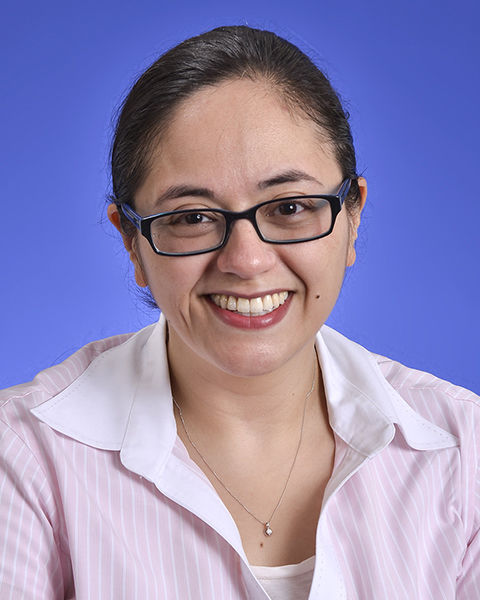Meet the User: Deborah Michiko Aruguete

The National Center for Earth and Environmental Nanotechnology Infrastructure (NanoEarth) is proud to support the research of faculty from universities across the country. Deborah Michiko Aruguete, Ph.D., is the next participant highlighted in NanoEarth’s Meet the User series.
As a freshman at the University of Chicago, Aruguete followed free pizza on campus to a chance meeting with a mycologist from the Chicago Field Museum of Natural History. This led to a summer internship where she searched for mushrooms in bogs and later published a research paper on the uptake of heavy metals and lanthanides in wild mushrooms from areas of various pollution rates. This research shifted her focus from biology to biological chemistry, an internship in Germany, and an admission into the University of California, Berkeley for a Ph.D. in Chemistry.
Aruguete studied under a father of nanoscience, the current President of the University of Chicago, Paul Alivisatos, Ph.D., at Berkeley. Her research involved the physical chemistry and material science of inorganic nanoparticles, including structural and surface characterization. Samples she worked with often included beautiful small nanocrystals! As her graduate studies were coming to a close, she found a desire to combine these new skills with her interest in environmental science.
Aruguete obtained a National Science Foundation (NSF) fellowship to work as a postdoctoral associate with Mike Hochella, Ph.D. in the Virginia Tech Department of Geosciences. The combination of nanotechnology and the environment gave her insight into toxicology. She studied how nanomaterials would impact organisms in the environment. This interest led to co-founding and becoming the associate director for the Virginia Tech Center for Sustainable Nanotechnology (VTSuN). She then became an Associate Program Director for the NSF Division of Earth Sciences (EAR), while continuing to work with a Virginia Tech student and the current NanoEarth Site Director, Mitsu Murayama, Ph.D. upon structural studies of metallic nanorods.
While she enjoyed her roles in program management, Aruguete realized she wanted to return to academia to focus upon more hands-on research and student mentoring. She became an Assistant Professor of Environmental Science at Penn State Behrend, a primarily undergraduate institution. Broadly, she is interested in emerging pollutants of concern. One category of these pollutants are the platinum group elements (PGEs), with an initial focus upon the catalytic converter materials emitted in vehicle exhaust. These materials contain PGE nanoparticles, specifically those of platinum, palladium and rhodium.
Aruguete and Murayama partnered on nanomaterial research at the Virginia Tech Nanoscale Characterization and Fabrication Laboratory (NCFL). They studied the behavior of catalytic converter materials in environmentally-relevant solutions. The results showed that environmentally-ubiquitous compounds and winter deicer salts could induce dissolution of the PGE nanoparticles. These dissolved PGEs released into the environment are similar to chemotherapy drugs.


Aruguete is also interested in the environmental behavior of quaternary ammonium compounds (QACs), specifically focusing on their interactions with mineral nanoparticles. QACs are found in everyday items, such as shampoo, lotion, detergents, dryer sheets, and disinfectants. These materials rose in popularity during COVID-19, as they are in major disinfectants such as Lysol Spray and Clorox Wipes. Between Penn State Behrend and NanoEarth, Aruguete is researching how the QACs affect mineral nanoparticles, if the nanoparticles aggregate, and how they are transported through the environment. In the first study (published in Environmental Science: Nano) the nanoparticles remain suspended in water, therefore aggregating less. This allows the nanoparticles to remain more mobile in the environment.
Aruguete has long term goals of researching the behavior of PGEs and other critical elements in electronic waste, as well as obtaining tenure. She is currently part of MentorNet, the American Chemical Society, the American Geophysical Union, Geochemical Society and Sigma Xi. She enjoys hiking, art, traveling abroad, and spending time with her family. Her advice to young researchers includes having broad goals, being versatile, open to new experiences, and never being afraid to ask for help! She encourages taking opportunities to travel, including gaining international scientific experience.






